India is a land of people with strange behaviours. We tend to be too serious with all the trivial things and take too light the things that are really too serious. The immediate actions and reactions on the New Education Policy (draft) report amply demonstrate this great quality in us without an iota of doubt.
There has been an overwhelming response to this series on NEP and many readers have expressed shock and anger over the first chapter that attacks the social activists so vehemently. They are of the opinion that the series would be grossly one sided ignoring the genuine apprehensions of the Tamils. It is quite understandable.
The attack is not aimed at questioning the rights of the activists but their ignorance in identifying the issues. The draft report on New Education Policy has many more flaws that are much more damaging – sure to cause devastating effects on the overall well being of our society at large. Particularly in matters of elementary / primary education, the Policy is clearly a very big letdown and lacks vision to take the country forward on its centuries old ethics and morals.
This is what should have been the point for debate, for agitation, for protest. But, the leaders and activists are happy fighting over the language issue because it suits their political agenda.
The New Policy does not care to imbibe qualities like love, care and compassion in the children and the youth but speaks at length about ways and means of making them ‘skilled’ and ‘competitive’ to enhance their ability to earn money!
In chapter1 ‘Early Childhood care and Education(ECCE): The Foundation of Learning’, the report says – “a strong ECCE programme is among the very best investments that India could make, with an expected return of Rs 10 or more for every Re 1 invested.”
Education is all about ‘investment’, ‘return’ and what it means to the growth of national economy. Can there be a more negative, pessimistic approach? It is incredibly insulting to see the level of travesty in the minds of the makers of Education Policy of a nation that has a very rich, most ancient tradition of inculcating Ahimsa, Daya and Dharma in the children as a part of ‘Gnana’ and ‘Vidya’.
It is ridiculous, sorry to say, to have completely ignored the aspect of teaching morals in the Primary Education and to speak of talent search and competitiveness among the children. The committee does owe an explanation to the people of this nation about why there is not a word in the Policy aboutvalue based education – at least at the primary level.
The draft policy firmly advocates ECCE which means that children at age 3, MUST BE enrolled to pre-school education and says that “India absolutely must invest in ECCE for all children for all these reasons – equality and justice, ‘employability’ and the prosperity and economic growth of the country.”
This dangerous suggestion forcefully snatches the most precious childhood days from the parents and from the children too. With the advent of the economic necessity of both the parents being employed, the effective, quality time spent that they spend with their children has drastically come down.
In the event of ECCE being scrupulously followed and implemented, the children of 3 years would have to go thro the school hours and formal education in schools and Anganwadis. What would be ‘left’ in the children at the end of the day to spend ‘quality time’ with their parents, leave alone with their grandparents, neighbourhood ‘friends’ and for themselves?
Already, the parent – children relationship is going through a rough phase. This ‘extraordinary’ piece of advice by the Committee would for sure spell doom for the very survival of the most ancient, most precious Institution of India – the Family. Can we comprehend what this would really mean? Do our people know about this danger at all?
This childhood education idea is something that must not be allowed to pass thro unless its implications are fully explained to the public and the scheme is adequately amended to protect the ‘interests’ of the children. Nobody on earth can have the right to deny the children their childhood. And this right means nothing but being with their parents, elders and other family members.
Next comes the next issue – the most shameful part of the report. To liken the education given to children to an ‘investment’ and directly relating it to ‘employability’ is awfully awkward. It is cynical to think in terms of money where it should all be upbringing a child to the delight of the parents and for the benefit of upholding a certain level of moral and ethical values in the society. It is but a perverted approach to ready the children for a job, for an earning two decades later.
‘The Policy suggests that ECCE be included as an integral part of RTE Act’. The report says – ‘the numerous rich traditions of India over millennia in ECCE must also be incorporated in the curricular and pedagogical framework of ECCE’. It brings the traditional roles of families to support the theory of ECCE.
It is the ultimate joy of the parents to experience the divinely innocence of their child and to play, to move around and to constantly interact with them. They are the only ones who know the ‘language’ of their children. They know how to explain things and correct them wherever needed.
Now, the Policy takes this most pleasant duty away from the parents, makes it a ‘job’ of the pre-schools to train children to perfection. It is a pity that an absolute joy is converted to an arduous job of a few paid employees. Does it convince anyone?
The committee in its report all thro has planted many such theories that do not augur well for the good of culture, our tradition, our cherished legacy and… our economy which seems to be its only concern.
As said earlier, throughout the report of 400+ pages, there has NOT been a single reference anywhere to ‘value based education’. If the members of the committee believed it would be the job of the syllabus makers and people in charge of drafting the lessons and not of the Policy makers, they are very badly mistaken.
Formulating a ‘Policy’ is like pushing one to take a definite path; a particular direction. It just cannot leave the direction and the destination to be fixed by somebody else.
Clearly, the committee on new education policy, as far as primary education is concerned, has erred in knowing purpose and so it has missed the target. But we are hopeful. The intention of the Government of India is very clear – creating a nation of noble, responsible citizens thro quality education. When that be the case, we wish and expect that the recommendations of the committee are struck down.
What about Secondary education?
(to continue..
-baskaran Krishnamurthy
Email: [email protected]








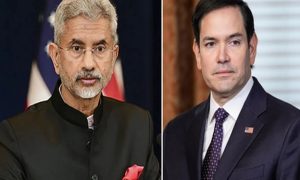

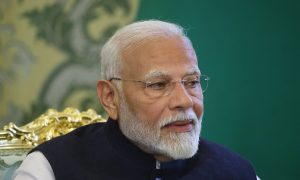



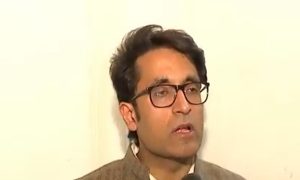





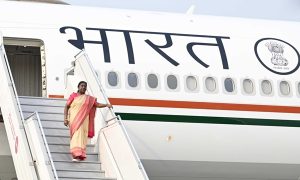





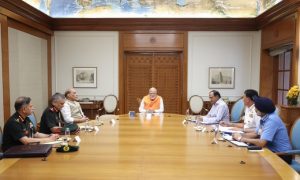

 WhatsApp us
WhatsApp us